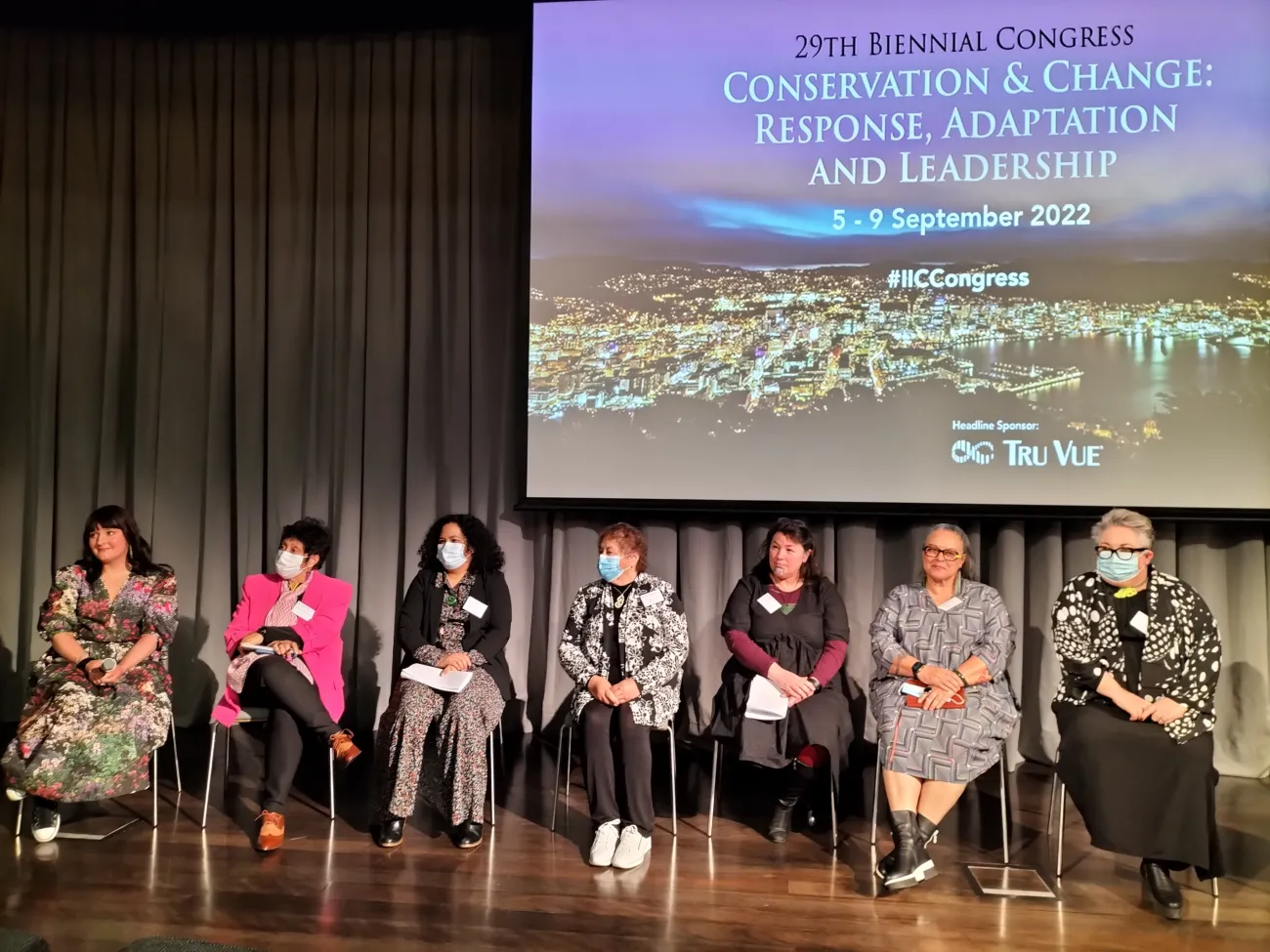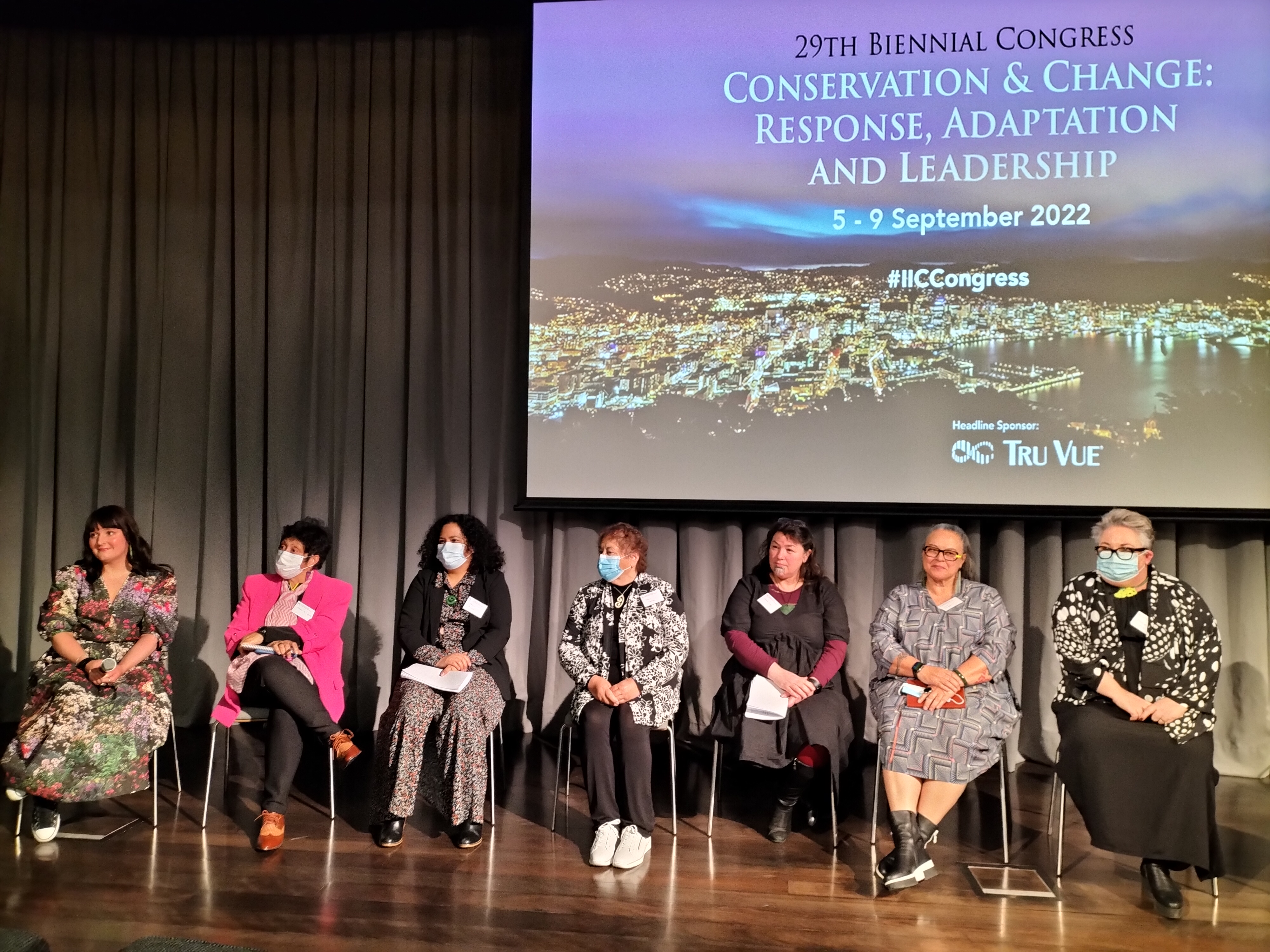Special Session: New Zealand
Submitted by sharragrow on 05 Sep 2022

Sam Finch
Monday, Special Session: Invited Speakers from Aotearoa New Zealand
Our afternoon session for the first day of the IIC Congress was a collection of Aotearoa New Zealand conservators in a Special Speakers Session. Our first speaker was Dr Jamie Metzger, the project lead of Ngākahu Te Papa, a project involved in the repatriation of koiwi tangata (human remains). She told us about the history of collections containing Māori human remains and how this practice turned people into specimens or objects. After a heart-warming case study of a recent repatriation, Jamie finished with a message to all those who have been stolen “we are coming for you”, and to the museums “we are coming, ready or not, because everyone deserves to rest in peace”.
The next talk was presented by Vasiti Palavi, Head of Collection Care at Tāmaki Paenga Hira Auckland War Memorial Museum, and Kahutoi Te Kanawa, Pou Arahi Curator Māori at Tāmaki Paenga Hira Auckland War Memorial Museum. In their talk, the two set the scene with the plans preparing the museum for the future, and development of Te Awe “collections readiness and access project” which guides ways of caring and storing taonga (treasures), community access, and meaningful engagement. Key to their talk is the outline of a programme named Āta Tiaki Taonga Tuku Iho: an action plan aiming to encourage more Māori to join the sector, to disrupt and indigenise and to revitalise Māori traditional arts. At the centre of this is their Indigenous Conservation Workforce Development Pilot which intends to bring 4-6 young Māori into a 12-18 month paid apprenticeship to become conservation technicians. Their talk emphasised māramatanga, sharing what we know with generosity.
The next talk of this session was presented by Dr Catherine Smith, Dr Donna Campbell, and Ms Ranui Ngarimu. The three women began by describing how they came to know each other and work together. With a shared passion for textile arts, the three of them travelled far and wide to study collections in various museums. They shared some of the difficulties they came across during their trip, such as lack of expertise and, most importantly, access. It was during a trip to the British Museum that the three women were able to study the legendary Māori sail Te Rā. Te Rā is not just a sail, she is a massive source of indigenous knowledge and a precious taonga who has been away from her home for many years. With this in mind you can imagine the joy in Ranui’s voice when she surprised us all with the announcement that Te Rā will be coming home next year, something to definitely keep an eye out for if you are interested in textiles.
The final speaker for the afternoon was Honiana Love who is a member of Nga Taonga, a group digitising and archiving Māori audio and video. Honiana told us some of the differences and difficulties of audio-visual conservation and proudly spoke of plans to conserve 350,000 items of magnetic media before 2024. She discussed the group’s community outreach which involves the production of kits that can allow a community to digitise their own magnetic media, and the concerns around how the communities can continue to care for their digital taonga. For this project community is crucial.

The session concluded with the speakers taking part in a question-and-answer session. The audience, both in person and online, posed some excellent questions to our panel. Discussions include the idea of two-way learning, how international groups such IIC can assist with succession planning, and the concept of trauma informed approaches. To bring the session to a close, Ms Ranui Ngarimu recites a karakia (prayer).
Authors
Sam Finch is an Honours Student at the University of Otago
Image Caption
The panel at the Q&A for the Special Speakers session. Image taken by Sam Finch